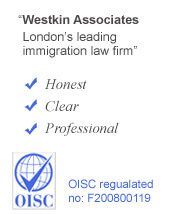In today’s blog post we will comment on the recent announcement by the UK government to increase visa fees across a range of categories and the potential repercussions this may bring.
On the 11th of January the government set out its list of proposed changes to the fees associated with visa, settlement and nationality applications for the year 2016-2017. Within this new legislation the government also set out the maximum fees that the home office can charge during the next four years. However, the government did also stress that there was, currently, no plan to charge the maximum figures outlined in the proposals.
The idea behind the fee spike is to reduce the amount of money through which the UK taxpayer subsidises the broader border, immigration and citizenship system. The government state that by 2019-2020 the current system will be self-sufficient and not rely on taxpayer contributions to fund it.
- small increases (2%) for visit, study and work visas
- fees for settlement, residence and nationality will increase by 25% in 2016–17
- targeted increases have been applied to premium services, such as the priority visa service
Below we have outlined some of the proposed fee increases. Whilst these are provisional and only include the maximum rate, the actual rates are thought to be slightly lower.
For visitors
| Number | Type of application | Method of calculation | Maximum amount/rate |
| 1.1 | Entry clearance as a visitor for a period of six months or less. | Fixed amount | £95 |
| 1.2 | Entry clearance as a visitor for a period of more than six months up to and including twelve months. | Fixed amount | £200 |
| 1.3 | Entry clearance as a visitor for a period of more than twelve months. | Annual rate | £200 |
| 1.4 | Leave to remain in the United Kingdom as a visitor. | Fixed amount | £1,000 |
For Workers
| Number | Type of application | Maximum amount |
| 2.1 | Entry clearance or limited leave as a sponsored worker, where a certificate of sponsorship has been issued. | £1,500 |
| 2.2 | Entry clearance or limited leave as an unsponsored worker. | £2,000 |
| 2.3 | Entry clearance or limited leave as a student. | £480 |
| 2.4 | Entry clearance or limited leave where the basis upon which that leave is given may (after one or more subsequent periods of leave on the same basis) lead to a grant of indefinite leave to remain. | £3,250 |
| 2.5 | Entry clearance or limited leave for any purpose (excluding visits) not referred to in the preceding provisions of this table. | £2,000 |
| 2.6 | Indefinite leave. | £3,250 |
General Applications
| Number | Type of application, process or service | Maximum amount |
| 7.1 | Naturalisation as a British citizen or a British overseas territories citizen. | £1,500 |
| 7.2 | Registration as a British citizen, a British subject, a British protected person, a British overseas citizen or a British overseas territories citizen. | £1,500 |
| 7.3 | Registration of a declaration of renunciation of British citizenship, British overseas citizenship, British overseas territories citizenship or of the status of British subject, British National (Overseas) or British protected person. | £400 |
| 7.4 | Amendment of a certificate of registration or naturalisation as a British citizen. | £250 |
| 7.5 | Arrangement of a citizenship ceremony. | £100 |
| 7.6 | Administration of a citizenship oath, or oath and pledge, where not administered at a citizenship ceremony. | £10 |
| 7.7 | Issuing of a document confirming that a person has the right of abode in the United Kingdom. | £550 |
| 7.8 | Supply of a certified copy of a notice, certificate, order, declaration or entry given, granted or made under the 1981 Act, any of the former nationality Acts, or the 1997 Act. | £250 |
| 7.9 | Supply of a copy, or replacement, or amended version of any of the documents specified above. | £250 |
Overall, whilst changes to visit, study and work visas will see a small increase; other applications are set to see a greater increase. Whilst it is understandable that the government seek to move the burden of paying for immigration services from the state to a self funding model, the rise itself could be seen as the latest in a series of legislation that make immigration (whatever the reason) stricter.
For a full list of fee changes visit http://www.legislation.gov.uk/ukdsi/2016/9780111142691/article/9 for more information.



